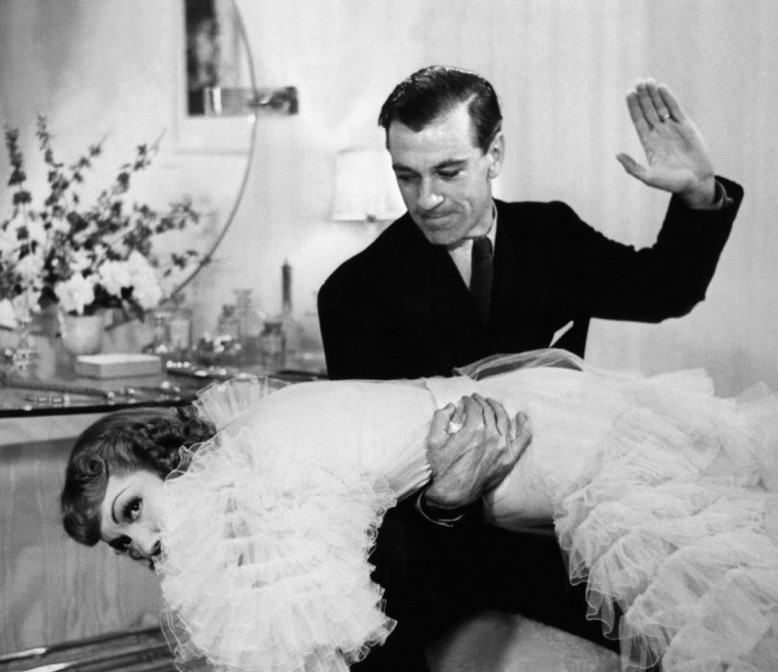I have often ruminated that young men need to evaluate their career choices very carefully before picking the one they think will work best for them.
Increasingly, it’s become apparent that going to college is not a worthwhile option for them — unless they want to be hounded, harassed and vilified just for the “crime” of being a man, that is. (10,000 instances of false accusations, man-hating professors and the courses they teach have been omitted on grounds of brevity.)
Now, we’ve seen in other spheres what men do when they feel that the game rules are loaded against them, or that participation leads not only to inevitable failure, but even to a compromised future. The dating game is one such activity, where men have either deliberately turned the rules of the game against women and used them to their own benefit — or have simply eschewed all participation in the face of assured failure (going their own way — MGTOW) and simply created a parallel life outside the game.
I’m suggesting an alternative to the career game.
Don’t go to college, at least until the rotten system has collapsed under the weight of its own prejudice and misogyny misandry, and been replaced with a better deal. Ignore the vested interests of people and institutions who preach the lie that you can only be successful with a college degree.
If you’re super-smart and driven like Michael Dell or Bill Gates, of course, you don’t need to be told this. But only a very few men, in any activity, are in that rare 0.00001% of super-achievers.
But for the vast remainder, there is an option: work in industries where the vast majority of women can’t or won’t participate. I’m talking about the heavy, dirty and sometimes thankless jobs (Mike Rowe-type Dirty Jobs) which not only don’t require a college degree, but where a college degree might even be a hindrance and not a qualifier.
Just last week I came across a guy who was an oil field worker. He’d fled from Venezuela right after that thug Hugo Chávez came to power, and in the eighteen years since had worked his way up the ladder, in oilfields all over the world. Now, at age 45, he’d finally reached the point where he didn’t have to work the oil rigs, just visit them and see how things were going. Along the way he’d acquired a wife, two preteen kids, and a $750k house in Plano where I picked him up to take him to the airport. He’d completely lost his Hispanic accent (when he left Venezuela he couldn’t speak a word of English) and was also fluent in Arabic and (ahem) German. When I asked him if he had a university degree he just laughed and said, “What for?”
What for, indeed.
Here’s the point. I know it’s going to be difficult for Millennials and their successors to handle this, but working dirty jobs is hard. It requires dedication, stubbornness and of course a willingness to get one’s hands dirty, and sadly, because of the education industry’s indoctrination of kids, this choice is often dismissed or demeaned.
It shouldn’t be. If you weigh the eventual benefits of dirty work — where, by the way, your exposure to militant feminism is going to be minimal to nonexistent — against a useless degree coupled with crippling debt, this should not be a difficult decision.
Is this risky? Not as much as you’d think. Just the other day, our local community college broke ground on a campus which apparently is going to be dedicated almost exclusively to the “hard” careers — automotive service and repair, construction, welding, plumbing, electrical work, manufacturing and so on — but I’m not going to suggest you look to such an institution for your education / training; what’s important is simply to realize that for such an event to have taken place, there must be a crippling shortage of young men willing to get into those fields, and this is the Establishment’s attempt to address it. (It’s complete bollocks, of course — you’d do better by getting an apprenticeship at a real place of work.)
So, in the paraphrased words of Ayn Rand, go “Galt” and make your own way in the world. You may not succeed, of course, but remember that failure is equally (or, in these times, more) likely with a freshly-printed college diploma clutched in your hand.
Become a watchmaker, if you’re mechanically inclined. Work in construction, if you’re strong in body. Get an apprenticeship in a trade, preferably an ugly, dirty and tough one where just by virtue of being a man you face no competition from women. I guarantee you, there’s a tough job out there for any man if he’s prepared to go for it. And if your first one (or several) choices don’t work out, find another one that does.
Let women take over non-jobs like human resources, clerical jobs at the DMV, cubicle management, bank tellers or benefits administration at Global MegaCorp Inc., and laugh as the life force is drained from them.
Here’s the challenge: be a man. Not today’s version of “male” figures who argue over craft beers and fashion accessories. I’m talking about real men, who do things for themselves, push aside barriers with confidence and, eventually, end up with women (like my friend Raul, above) who appreciate them for their qualities and for the security and families they can provide.
When I asked Raul if his wife worked, he looked at me in puzzlement and said, “What for?”
If this guy taught a class, he’d create a generation of achievers. He would never do such a thing, of course, although he would (and does) train other men to succeed as he has.
Now get out there and make something of your life that does not include words like “curriculum”, “term paper” and “Diversity Studies”. You’ll be a world better for it.
Postscript: there was a time when enlisting in our nation’s Armed Forces would have been a viable career choice for a young man. Not today, unless you try out for Special Forces, SEALs or similar.


